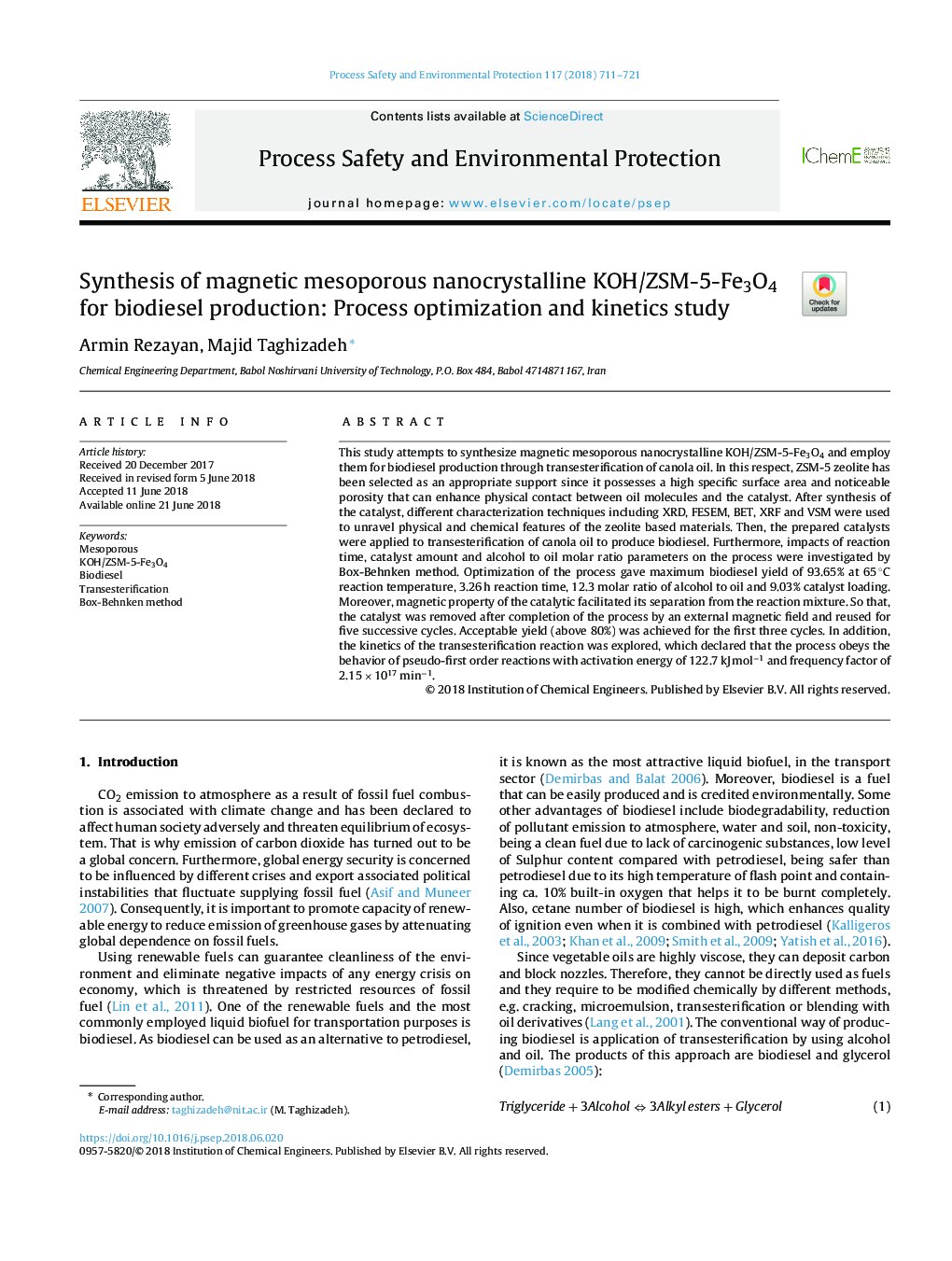| Article ID | Journal | Published Year | Pages | File Type |
|---|---|---|---|---|
| 6974040 | Process Safety and Environmental Protection | 2018 | 11 Pages |
Abstract
This study attempts to synthesize magnetic mesoporous nanocrystalline KOH/ZSM-5-Fe3O4 and employ them for biodiesel production through transesterification of canola oil. In this respect, ZSM-5 zeolite has been selected as an appropriate support since it possesses a high specific surface area and noticeable porosity that can enhance physical contact between oil molecules and the catalyst. After synthesis of the catalyst, different characterization techniques including XRD, FESEM, BET, XRF and VSM were used to unravel physical and chemical features of the zeolite based materials. Then, the prepared catalysts were applied to transesterification of canola oil to produce biodiesel. Furthermore, impacts of reaction time, catalyst amount and alcohol to oil molar ratio parameters on the process were investigated by Box-Behnken method. Optimization of the process gave maximum biodiesel yield of 93.65% at 65 °C reaction temperature, 3.26 h reaction time, 12.3 molar ratio of alcohol to oil and 9.03% catalyst loading. Moreover, magnetic property of the catalytic facilitated its separation from the reaction mixture. So that, the catalyst was removed after completion of the process by an external magnetic field and reused for five successive cycles. Acceptable yield (above 80%) was achieved for the first three cycles. In addition, the kinetics of the transesterification reaction was explored, which declared that the process obeys the behavior of pseudo-first order reactions with activation energy of 122.7 kJ molâ1 and frequency factor of 2.15 Ã 1017 minâ1.
Related Topics
Physical Sciences and Engineering
Chemical Engineering
Chemical Health and Safety
Authors
Armin Rezayan, Majid Taghizadeh,
